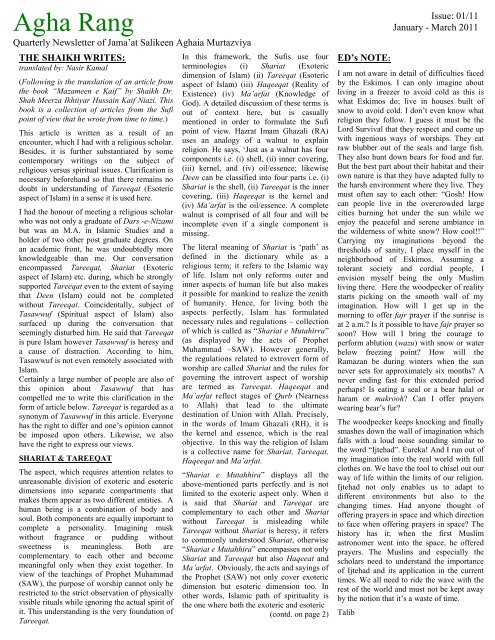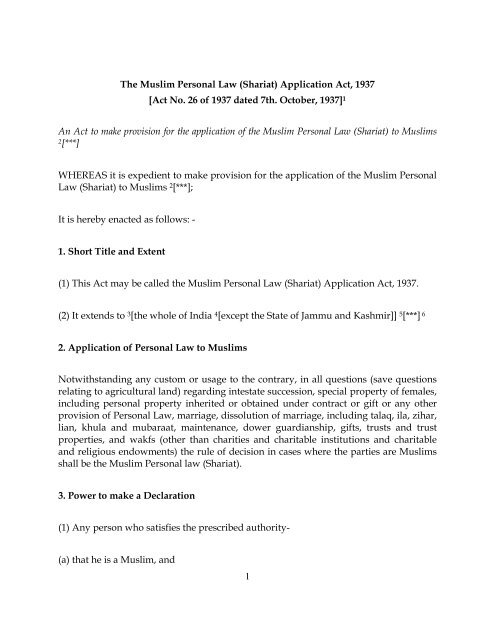The word "shariat" is derived from the Arabic word "shariah," which means "path" or "way." In the Islamic tradition, shariat refers to the code of conduct and laws that are derived from the Qur'an and the teachings of the Prophet Muhammad. It is the fundamental framework for the governance of Islamic societies and the regulation of personal and social behavior.
The shariat is seen as a divine source of guidance that Muslims are expected to follow in order to live a life that is pleasing to God. It covers a wide range of issues, including the role of Muslims in society, the rights and obligations of individuals and communities, and the rules of personal conduct. The shariat also includes provisions on matters such as marriage, divorce, inheritance, and business transactions.
One of the main principles of the shariat is the concept of justice. Islam teaches that all people are equal before God and that justice should be applied equally to all, regardless of their social or economic status. The shariat also emphasizes the importance of compassion, mercy, and forgiveness, and encourages Muslims to treat others with kindness and respect.
In addition to providing guidance on personal and social matters, the shariat also has a legal component. Islamic law, or shari'a, is based on the shariat and is used to regulate the legal system in many Muslim countries. However, the interpretation and application of Islamic law can vary widely from one place to another and has been a source of controversy and debate within the Muslim world.
While the shariat is an important part of Islamic belief and practice, it is important to note that it is not the only source of guidance for Muslims. The Qur'an and the teachings of the Prophet Muhammad are also considered to be important sources of guidance, and many Muslims rely on their own personal understanding and interpretation of these sources to inform their beliefs and actions.
In conclusion, the shariat is a comprehensive code of conduct and laws that is central to the Islamic tradition. It is based on the Qur'an and the teachings of the Prophet Muhammad and serves as a framework for the governance of Islamic societies and the regulation of personal and social behavior. While the shariat has a legal component, it is also based on principles of justice, compassion, mercy, and forgiveness, and encourages Muslims to treat others with kindness and respect.









